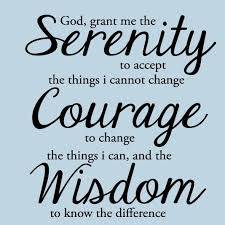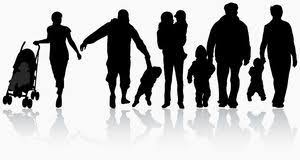The article, “Families First-Keys to Successful Family Functioning: Family Roles” explains roles in a healthy family system.
“Family roles are the recurrent patterns of behavior by which individuals fulfill family functions and needs (Epstein, N. B. Bishop, D., Ryan, C., Miller, & Keitner, G. (1993) Individual members of families occupy certain roles such as child, sibling, grandchild. Along with roles come certain social and family expectations for how those roles should be fulfilled. For example, parents are expected to teach, discipline, and provide for their children. And children are expected to cooperate and respect their parents. As family members age, they take on additional roles, such as becoming a spouse, parent, or grandparent. A person’s role is always expanding or changing, depending upon his or her age and family stage.”
In not-so-healthy-families, like an alcoholic family system, the family roles are complicated. The following explains those roles in very general terms. Please note, no one person fits these stark clinical profiles exactly as written. Furthermore, like people playing healthy roles, one person may take on different roles at different times. It is not an exact science, but understanding the roles is important if you want to get off the dysfunction merry-go-round.
It takes some time to read through the role descriptions but it is worth the time if you are not aware of your own family role! After this excerpt, I reveal my own role.
The Enabler
Another descriptive word for this type of codependent family role is “the Caretaker“ The Enabler feels like they have to keep the family going. Over and over they take on the addict’s problems and responsibilities.
The Enabler is the martyr of the family, and often supports not only the dysfunctional behavior, but also a prime enforcer of the codependent roles that everyone else is required to play.
You often see this role in a family where the functioning of (one of) the parent(s) is impaired in some way, i.e. mental illness, substance abuse or a medical disability. This child will attempt function as the surrogate parent. They worry and fret, nurture and support, listen and console. Their entire concept of their self is based on what they can provide for others.
The Enabler protects and takes care of the problem parent so that the parent is never allowed to experience the negative consequences of his or her actions. The Enabler feels he or she must act this way, because otherwise, the family might not survive. The paradoxical thing about The Enabler‘s behavior is that by preventing the dysfunctional parent’s crisis, he or she also prevents the painful, corrective experience that crisis brings, which may be the only thing that makes the dysfunctional parent stop the downward spiral of addiction. Note: In case of an Enabler Parent, the same dynamic as described above applies.
The Hero
This family member devotes his/her time and attention to making the family look “normal” and without problems. The Hero can mask or make up for the dysfunctional home life. Over-responsible and self-sufficient they are often perfectionistic, are over-achievers and look very good – on the outside. The parents look to this child to prove that they are good parents and good people. Their goal in life is to achieve “success”, however that has been defined by the family; they must always be “brave and strong”. The Hero‘s compulsive drive to succeed may in turn lead to stress-related illness, and compulsive over-working. They learn at a young age to suffer the sadness of a parent and become a surrogate spouse or confidante.
While The Hero saves the family by being perfect and making it look good, the golden child may struggle to live up to his status. In a Narcissistic Personality Disordered (NPD) family, The Golden Child is the recipient of all the narcissistic parent’s positive projections, and is their favourite child. The golden child is usually victim of emotional and (covert) sexual abuse by the narcissistic parent. (S)He is also witness to, and sometimes takes part in, the other children’s abuse. Many specialists believe that witnessing your sibling’s abuse is as damaging as receiving it.
The Scapegoat
The Scapegoat is the “problem child” or the “trouble maker”. This family member always seems defiant, hostile and angry. The Scapegoat is the truth teller of the family and will often verbalize or act out the “problem” which the family is attempting to cover up or deny. This individual’s behavior warrants negative attention and is a great distraction for everyone from the real issues at hand. The Scapegoat usually has trouble in school because they get attention the only way they know how – which is negatively. They can be very clever, may develop social skills within his or her circle of peers, and become leaders in their own peer groups. But often the groups that they choose to associate with are groups that do not present healthy relationships. The relationships he or she experiences tend to be shallow and inauthentic.
The Scapegoat is sacrificed for the family. The Scapegoat will be the “identified patient”.* Scapegoats come in many different flavors, but two common ones are: 1) the picked, weak or sick child; or, 2) the angry, rebellious problem child who is constantly getting into conflicts. They are often self-destructive, cynical and even mean.
In an NPD family, The Scapegoat, or no good child is the recipient of the narcissist’s negative projections. They can never do anything right. The name ‘rebel’ implies that the child has chosen this role, which is debatable. The Scapegoat is usually victim of emotional and physical abuse by the narcissistic parent.
The Lost Child
The Lost Child is usually known as “the quiet one” or “the dreamer”. The Lost Child is the invisible child. They try to escape the family situation by making themselves very small and quiet. (S)He stays out of the way of problems and spends a lot of time alone. The purpose of having a lost child in the family is similar to that of The Hero. Because The Lost Child is rarely in trouble, the family can say, “He’s a good kid. Everything seems fine in his life, so things can’t be too bad in the family.”
This child avoids interactions with other family members and basically disappears. They become loners, or are very shy. The Lost Child seeks the privacy of his or her own company to be away from the family chaos. Because they don’t interact, they never have a chance to develop important social and communication skills. The Lost Child often has poor communication skills, difficulties with intimacy and in forming relationships. They deny that they have any feelings and “don’t bother getting upset.” They deal with reality by withdrawing from it.
In an NPD family, The Lost Child just doesn’t seem to matter to the narcissist, and avoids conflict by keeping a low profile. They are not perceived as a threat or a good source of supply, but they are usually victim of neglect and emotional abuse.
The Mascot
The goal of The Family Mascot is to break the tension and lighten the mood with humor or antics. (S)He is usually “the cute one.” This child feels powerless in the dynamics which are going on in the family and tries to interrupt tension, anger, conflict, violence or other unpleasant situations within the family by being the court jester. The Mascot seeks to be the center of attention in the family, often entertaining the family and making everyone feel better through his or her comedy. They may also use humor to communicate and to confront the family dysfunction, rather than address it directly. They also use humor to communicate repressed emotions in the family such as anger, grief, hostility or fear. This behavior is lighthearted and hilarious, just what a family twisted in pain needs — but the mascot’s clowning is not repairing the emotional wounds, only providing temporary balm. The rest of the family may actually try to protect their “class clown”. The Mascot is often busy-busy-busy. They become anxious or depressed when things aren’t in constant motion. The Mascot commonly has difficulty concentrating and focusing in a sustained way on learning, and this makes school or work difficult. (Hence they also referred to as “The Slacker”.)
They often have case loads rather than friendships – and get involved in abusive relationships in an attempt to “save” the other person. They have very low self-worth and feel a lot of guilt that they work very hard to overcome by being really “nice” (i.e. people pleasing, classically codependent) people.
Did you find yourself? Did you guess what role I played? I was the Scapegoat in my family system. At some level, I didn’t really like that role, and I realize now that I tried to be the Hero at many points in my life. I struggled too much in the world to be a good Hero. However, I really enjoyed my Hero moment last summer when I dashed home to take care of my ailing mom and stepdad. The Good Daughter!!!
All the other times, I was the Scapegoat. I was not so much a “bad” kid and I did not get into a ton of trouble in school. I was more often the other kind of scapegoat: rebellious, free-spirited, free-thinker, the philosopher. In the movies, this role has often been depicted as the angry, rebellious teen who goes around pointing out the family hypocrisy and shortcomings. That was me: I was the truth-teller to the family. At some level, I intuited the amount of dysfunction in my alcoholic family system and I didn’t like it. I tried to tell people about it, to make them see reality, to convince them to at least try to be normal. But sometimes I was hurtful. And, the family system goes to great lengths to avoid the truth, and my truth-telling always pissed people off. They would turn away from the real problem and heap the burning coals of deep shame on my head. “You are such a bad, rebellious person”, bad Jane, and so on and so on. Elsewhere, I have seen this reaction from family members called “shooting the messenger.”
By the way, I hope you also see the irony in some of my career choices, including writing and being a minister. Socially sanctioned truth-tellers! Our larger culture welcomes truth-tellers in certain contexts. If we jump through enough hoops we can even get ordained and wear fancy robes while we stand at the altar and tell people “the truth”.
That last sentence is the kind of stuff that always got me in trouble.
I notice that I use the past-tense in discussing my truth-telling and scapegoat role, but it is alive and well. Very recently I did a little hurtful truth-telling and I am still on the shit list because of it. After I spoke my thoughts, the familiar pattern played out: the attention turned from the real issue I was pointing to and into negative trait projection and heavy shaming. There were demands for apologies because of the projected “rude behavior”. Later, with my back against the wall amid more demands for an apology, I tried to tell the truth about my truth-telling but that only got me in deeper mud. Sigh.
I am beginning to see some humor in all this, and I feel blessed at this point in my life to have these insights. The issue for me now is deciding how much I want to modify being the truth-teller. It is not necessarily a bad thing to do, but the price is so high unless you are a minister and even then, the shame can be heaped on if you cross a line (like supporting gay marriage). Shame on you. Bad person. You apologize right now you infidel! I have carried shame on my back, in my soul, and in my heart since I first started talking. But the alternative is staying silent. I still hate the fact that everyone in my life stayed silent about how badly we were hurt as children. No one confronted our abusers. Hush, hush, hush. Cover it up. No one ever made amends. It may not be possible for me to ever just “stand by.” It seems like a cop-out to me.
Maybe I can help others see their truth by telling just my own?
The answer also lies in the AL-ANON/AA sentiment found in the Serenity Prayer: knowing what I cannot control
The shorter-term answer is to do what I always do, keep moving, exploring, traveling, that perpetual “leaving home.”
Goal Three: Focus on telling my own truth, meditate on the Serenity Prayer as I unravel the truth about truth-telling
Aside: I sprang out of bed at 4 AM this morning. My mind was full of thoughts about my family role and I needed to drink some coffee and start writing. Tango, who usually jumps up when I do because he will get breakfast, stayed in bed. In fact, he moved into my spot and has stayed there this whole time. He is not budging until the proper hour. It is, after all, dark and nearly freezing outside!





